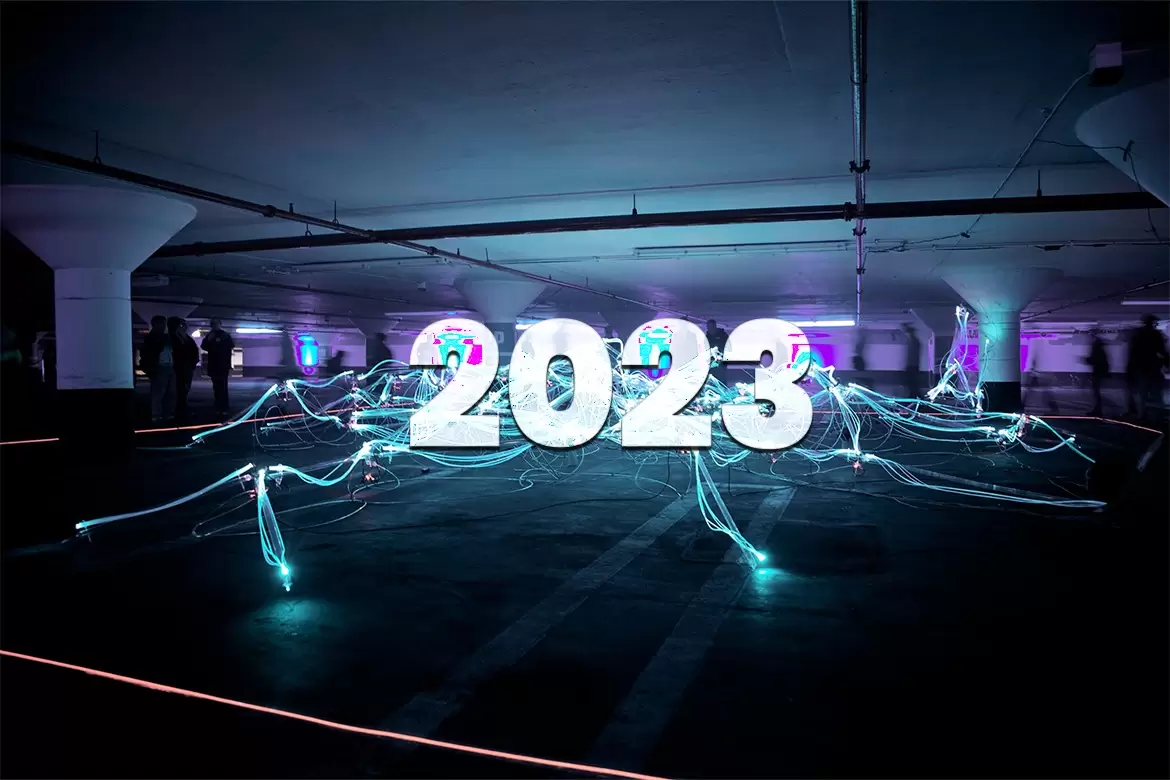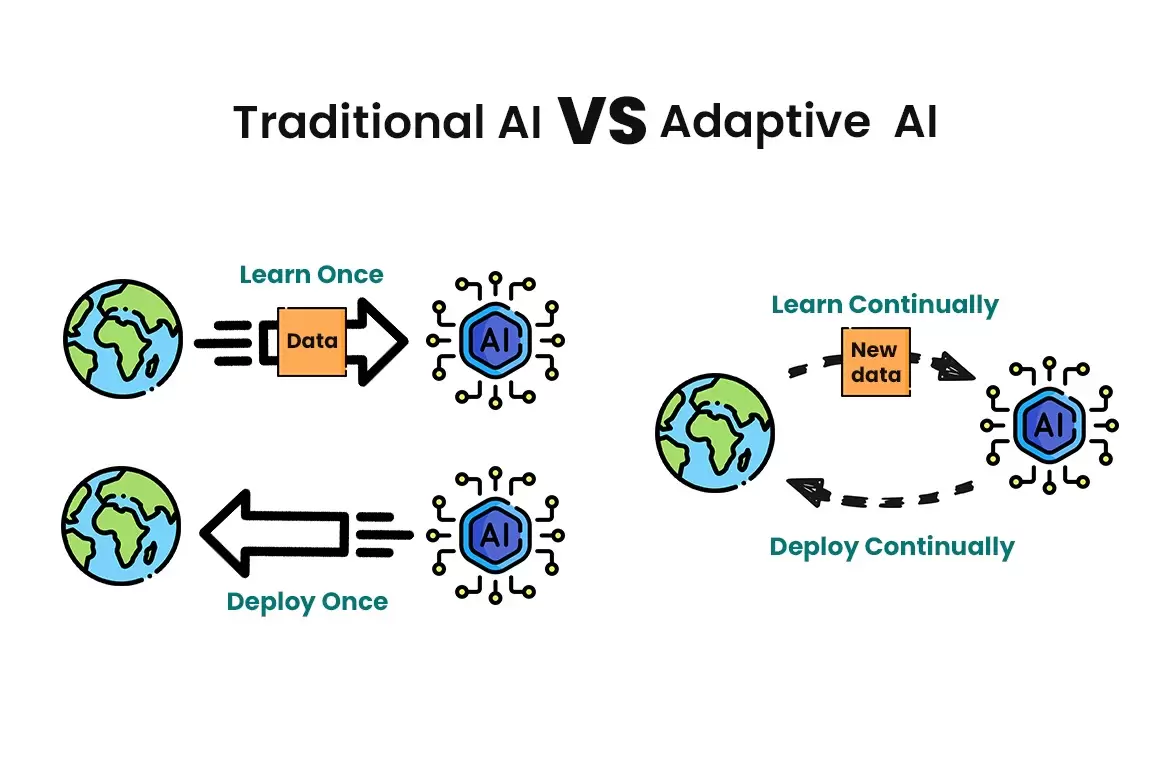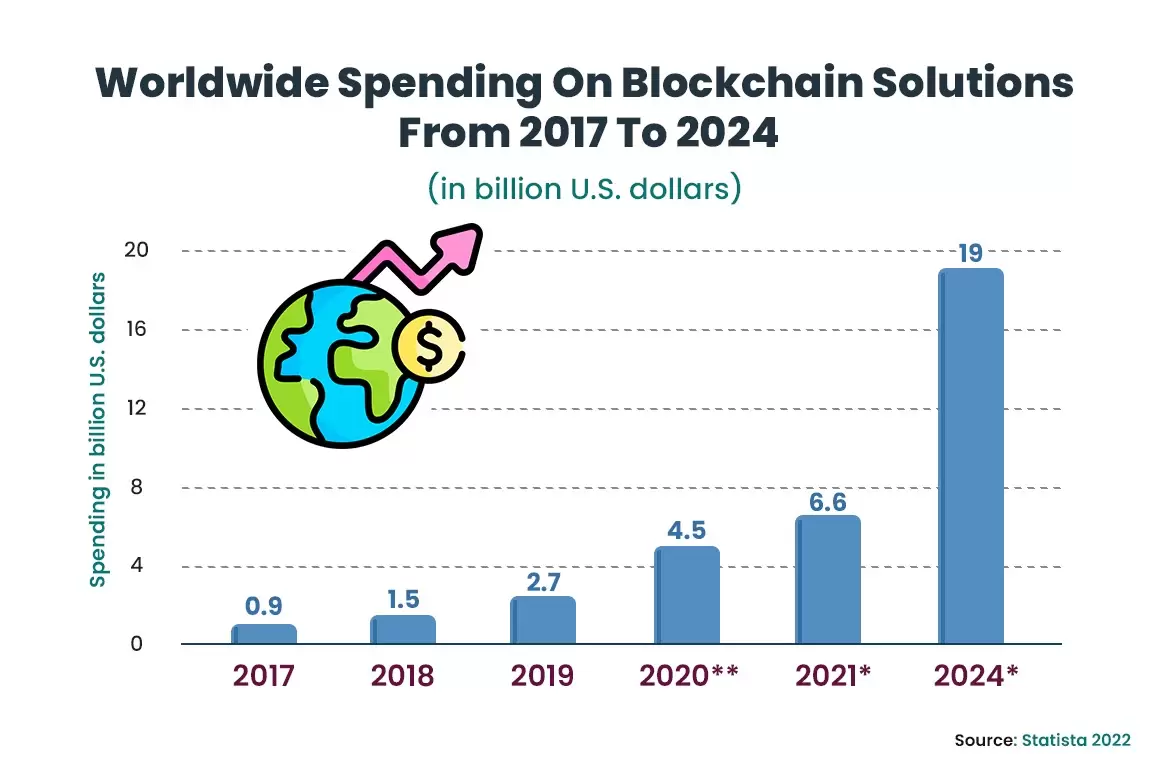
A new year. New beginnings. However, in the computing world, the 2023 tech trends that will transform businesses will continue to be rooted in AI-driven technology. Maybe your business imperatives in 2023 are to save costs while growing revenue (that’s a given), hitting the accelerator on digital transformation to increase productivity or how to best use data to drive better business insights, This might be the right time for business leaders and technologists to pivot and tweak your business model technologies based on this list of strategic technology trends that address all the 3 above imperatives.
AI will be the dominant investment area in 2023 for businesses
IDC, the premier global provider of market intelligence, forecasts that businesses globally will breach the $500 billion mark in investments in AI-centric systems. Of this, AI software will take the largest share of investment and there are new technological advancements to justify this increase in software spending.
IDC expects AI services to see the fastest spending growth at a compound annual growth rate (CAGR) of 22%. Hardware is set to grow by 20.5%.
Adaptive AI
Forbes research group, Verta Insights, says that real-time use cases will drive changes in the current ML tech stack in the next three years. Many ML tech stacks that businesses currently have, work on batch workloads and this will not support the trend that we will see in real-time use cases, specifically in customer-facing applications.
Real-time ML is the process of training machine learning algorithm models by running live data through it. This is far more advanced than the more traditional approach that uses a batch of historical data to train ML models in an offline mode. This real-time use case to train ML models is also known as Adaptive AI.

Systems that use Adaptive AI can quickly change according to new circumstances, learning dynamically based on new data and adjusting goals on the fly. This will particularly be useful for operations that require a fast response. For instance, AI-driven chatbots will be able to learn on the go and refine their conversational skills. AI-driven chatbots with NLP technology, are already extensively used on websites and customer service applications. Adaptive AI technology will enable chatbots to give answers in a more human-like way, instead of pre-formulated answers. The chatbot responses can even adapt to the nuances of tone and language styles. This will increase the trust factor for customers interacting with the business.
Ethical AI
There is a note of caution though that businesses need to include in their AI strategies. While useful hyper-personalization can increase customer revenue and satisfaction, there is a thin line into creepiness that businesses have to avoid in their interaction with customers.
AI providers will often say their technology follows ethical guidelines but since there is no input from legal or a global ethical AI regulatory body – this is just self-assessment and cannot be a standard.
AI algorithms have been found to embed harmful bias and discrimination that might be unconscious in certain cases but can affect people’s equal opportunities, particularly in hiring and in financial transactions like loan applications. Social media data collection can impinge on people’s privacy or as we know it, constantly track our activity without our direct consent.
That is set to change in 2023. In technology trends, the ethical use of AI will be more regulated and companies need to keep abreast of changes and adapt quickly. Over the last year, regulatory bodies both at the international level as well as U.S. city governments have begun to focus on the ethical use of AI. In fact, a number of AI laws and regulations are expected to be set in motion in 2023. Some of them are the EU AI Act, The American Data privacy and Protection Act and many more.
Fines for non-compliance can cost businesses 2-6% of their annual revenue. That is a heavy price to pay.
This will see businesses making a deliberate focus on ensuring their AI algorithms and their outcomes are free from bias based on age, gender, ethnicity, etc. However, not all algorithms will require such a high level of scrutiny. Low-risk AI models that do not affect the safety or human rights might not be impacted too much. The financial, and healthcare industry as well as AI in employment hires will need to set strong guardrails. Before regulators begin to knock, businesses need to create a process for monitoring and reporting how the AI models were created, deployed, and monitored. At the moment, this transparency is mostly negligible.
Gartner has predicted that by 2025 the AI regulations that are starting to come into force will make organizations increase their focus on ethical AI, transparency as well as privacy.
Increasing usage of Blockchain to increase digital trust
While blockchain is a distributed ledger technology (DLT), the reason it is included here is that a combination of AI and blockchain is proving to be very powerful.
Cloud storage is the usual way businesses store data but this is centralized storage and is not usually encrypted. In the case of blockchain, data is stored in a series of transactions, each stored in the form of chunks or blocks and once a block is written it cannot be altered. Independent computers will record and share the data, this means that each member in the network has a copy of the information that requires a key to access. Since data is decentralized, if a node or copy is hacked into, the remaining will not be altered and the discrepancy can be tracked. It is one of the most secure ways of verifying if data or documents are authentic and unaltered.

AI in conjunction with blockchain can make decisions on what transactions are fraudulent or what information has to be added to a new node. This will speed up blockchain networks so that they can handle increasing amounts of data securely.
Blockchain technology is predicted to find increasing use in logistics, supply chain management, and finance. Particularly because these industries deal with a large amount of documentation and transactions that have to be secure. For instance, in supply chains, companies can make payments directly without any third party and with relevant documentation. All members in the network will have their node or copy of the information.
Implementing blockchain technology will require businesses to create a long-term strategy. It cannot happen overnight. Organizations with sensitive data are expected to explore the adoption of blockchain.
Finally…
No company can afford to ignore AI’s impact in different spheres of operation. Investments in AI and its related technologies are going to have more takers in 2023. Particularly in creating greater operational resilience. Executives need to prepare an accelerated road map for an AI-enabled future. Contact our team of experts to aid you in making the right choices.

